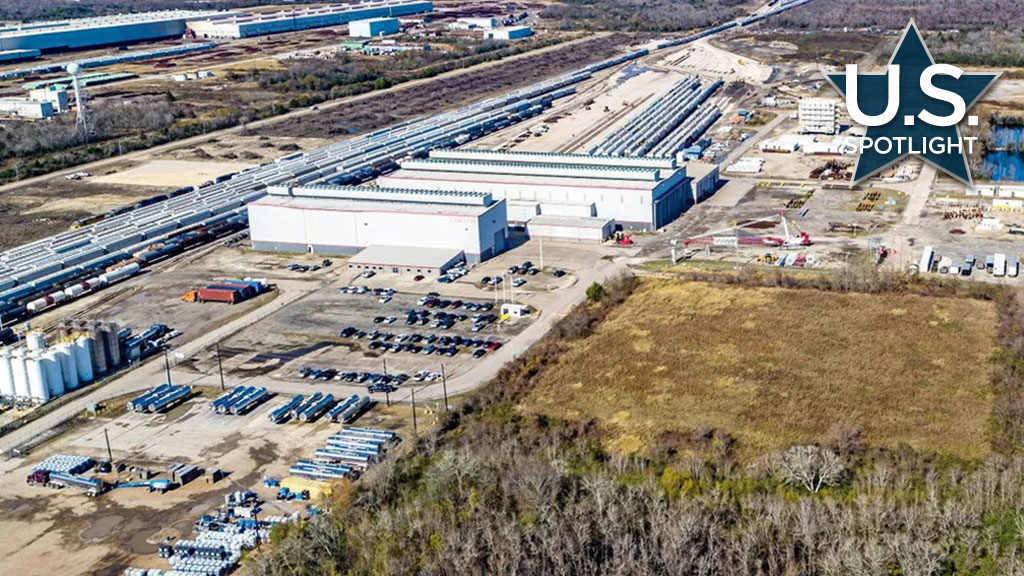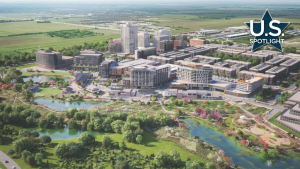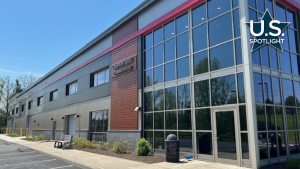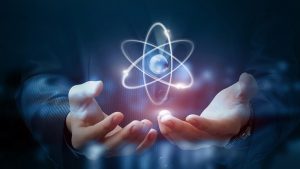Texas is increasing its mix of energy sources. Although traditionally centered on fossil fuels, the state is adapting to a world focused on low-carbon and even zero-carbon electricity production.
Texas is a national leader in overall renewable power generation like solar and wind. With hydrogen becoming the newest kid on the energy block, Texas is determined to establish itself as a national leader in clean hydrogen infrastructure and supply as well.
As recently reported in the Daily Commerce News, the U.S. Department of Energy (DOE) announced the industry-led partnership HyVelocity Hub as one of seven successful national candidates to receive government funding of $1.2billion. HyVelocity will use this to develop a new Regional Clean Hydrogen Hub along the Texas Gulf Coast.
Evidence of new hydrogen investments in facility construction is well underway.
U.S.-based AES Corporation and Air Products had already announced plans in December 2022 for a $4 billion green hydrogen facility in Wilbarger County along the Texas-Oklahoma border, projected to begin commercial operations in 2027.
“This mega-scale renewable-power-to-hydrogen project includes approximately 1.4 GW of wind and solar power generation, along with electrolyzer capacity capable of producing over 200 metric tons per day (MT/D) of green hydrogen, making it the largest green hydrogen facility in the United States,” AES said in a media release.
The project is anticipated to create more than 1,300 construction jobs, 115 permanent operations jobs, and 200 transportation and distribution jobs.
According to the Office of the Texas Governor, it could also generate approximately $500 million in revenue to the state over the project’s lifetime.
As Texas becomes a focal point of U.S. hydrogen, it is attracting international attention and investment.
Airbus, Houston Airports and the Center for Houston’s Future have signed a Memorandum of Understanding to study the feasibility of a hydrogen hub at George Bush Intercontinental Airport.
“Airbus’ ‘Hydrogen Hub at Airports’ concept brings together key airport ecosystem players to better understand hydrogen infrastructure needs for future aircraft, and to develop a stepped approach to decarbonizing all airport-associated infrastructure using hydrogen,” said Airbus.
Germany-based Thyssenkrupp Nucera, a supporting partner of the HyVelocity Hub, established a Houston office in 2021 and has increased its staff from 15 to 60 employees with more expected. One reason is the grant of $50 million from the DOE for Thyssenkrupp Nucera to mass-produce its 20-megawatt electrolyzers in the United States.
Further confirmation of Houston’s status as a national center for hydrogen activity is evidenced by Belgium-based engineering firm John Cockerill entering the U.S. market for the first time.
In December 2023, Cockerill broke ground on their electrolyzer gigafactory in Baytown, near Houston. When it opens later this year, the facility will be the largest of its type in the country, ultimately capable of producing 1.0GW of electrolyzers per year.“The hydrogen economic fabric is particularly rich in Texas which, we hope, will spur even more local collaboration on projects,” said Nicolas de Coignac, president of John Cockerill Americas, at the ground-breaking ceremony.
Cockerill had purchased the site and its existing buildings only two months earlier in October 2023, allowing it to move forward towards full production quickly.
“The building of our new gigafactory was pre-owned,” explained de Coignac. “This is part of our strategy, to hit the ground running and move quickly in the North American market, where the hydrogen sector is developing at an incredibly rapid pace. By purchasing an existing building, we’re able to expedite or eliminate much of the permitting and construction that can cause projects to stagnate, and instead move straight into getting this facility up and running.”
Belgian Prime Minister Alexander De Croo attended the Baytown ceremony, validating the international significance of hydrogen development in Texas. He also had encouraging words to say.
“Today’s ribbon cutting at John Cockerill’s Houston manufacturing facility is the first step into deepening the supply chain between Belgium companies and the Texas Gulf Coast.”
Increased research that could spawn further hydrogen investment and facility construction has also been announced.
DOE support has accelerated the development of the Center for Electromechanics at The University of Texas at Austin and its new hydrogen research and demonstration facility that opened in April 2024. This first-of-its-kind hydrogen proto-hub is equipped with facilities to produce hydrogen via an onsite electrolyzer, both from renewable natural gas from a Texas landfill, and water electrolysis powered by solar and wind energy.
The center will power a stationary fuel cell for clean, reliable power to the Texas Advanced Computing Center, and provide fuelling stations for a fleet of Toyota Mirai and a mobile fuelling trailer that forms part of an off-site hydrogen-powered drone demonstration. Several follow-up studies have also been identified.











Recent Comments
comments for this post are closed